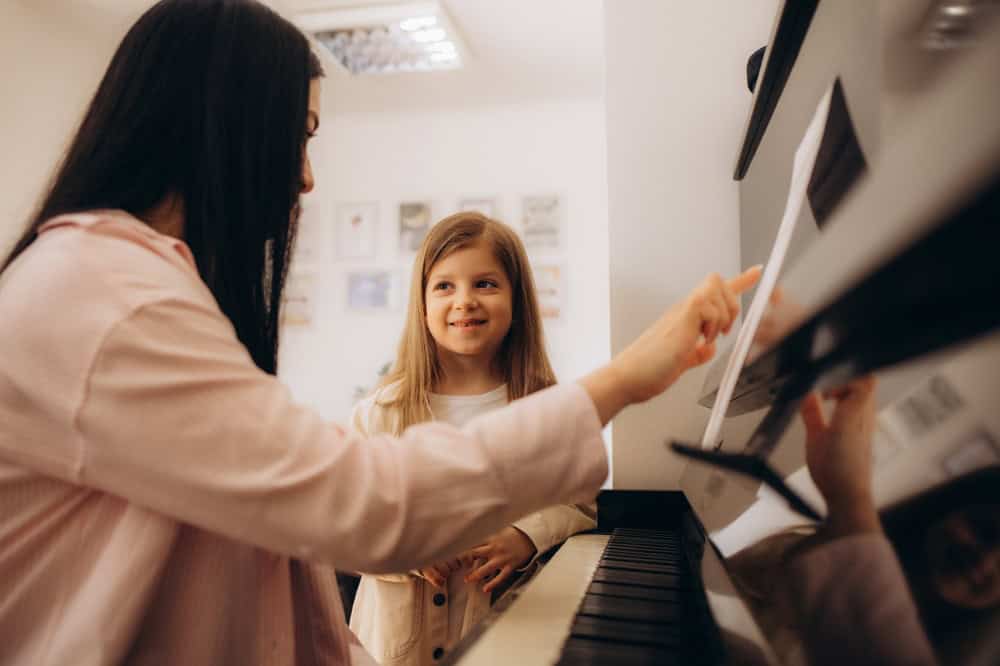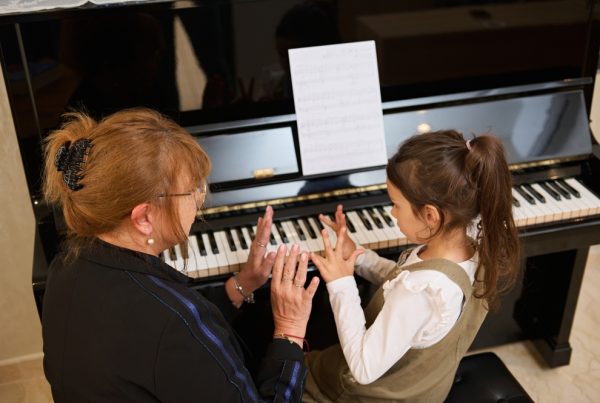Parents across Utah are embracing private piano classes to spark creativity, boost confidence, and give children lifelong musical skills—without losing family time to traffic. This guide explains how Volz Piano’s mobile teachers bring child-friendly instruction right to your living room, outlines the proven Volz Piano Method for kids, and shares practical advice for choosing the perfect instructor, setting up an inspiring practice space, and supporting your child’s musical journey from first note to confident performance.
Table of Contents
- Why Private Piano Classes Are Ideal for Kids
- Inside the Volz Piano Method for Kids
- Science-Backed Benefits of Piano Study
- How “Piano Teachers That Drive to You” Works in Utah
- Setting Up Effective At-Home Piano Lessons
- Finding a Piano Teacher Near Me
- Roadmap: From First Note to Confident Performance
- Parental Support and Daily Practice Tips
- Understanding Costs and Scheduling
- FAQs
Why Private Piano Classes Are Ideal for Kids
Children thrive on individual attention. In Frontiers in Psychology, researchers found that learners in one-on-one piano lessons kids programs progressed faster in rhythm accuracy and note reading than peers in group settings. Tailored pacing also means less frustration and more motivation.
Parents searching for “piano teacher near me” want shorter commutes and flexible scheduling. With private lessons, instructors adapt repertoire, games, and challenges to each child’s strengths—something group classes rarely achieve.
Keywords used: private piano instruction, children’s piano lessons, piano classes for children, kids piano instruction, personalized music lessons for children.
Inside the Volz Piano Method for Kids
The Volz Piano Method for kids blends time-tested classical pedagogy with modern motivational tools. Students begin with finger-number songs and rhythm clapping, then move on to improvisational games that strengthen ear training.
Key Features of the Volz Method
- Color-coded notation to simplify early reading
- Creative storytelling to anchor musical concepts
- Weekly achievement badges that reinforce progress
- Optional duet tracks for family participation
This approach delivers child-friendly piano instruction that keeps young minds engaged while building solid technique.
Science-Backed Benefits of Piano Study
The Johns Hopkins School of Medicine reports that learning piano strengthens memory centers in the brain. A study by the USC Brain and Creativity Institute showed faster language development in children who practiced piano regularly.
Research from the National Institutes of Health links piano lessons for kids to improved executive function and emotional regulation. These gains translate to better performance in math, reading, and social settings.
How “Piano Teachers That Drive to You” Works in Utah
Volz Piano’s mobile piano teachers Utah program sends certified instructors directly to your home, providing private piano lessons that come to you. Families in Salt Lake City, Provo, and Ogden save an average of 40 minutes a week on travel, according to Ensemble Music Schools.
How the Service Operates
- Teachers arrive with lesson materials and cleaning supplies
- Flexible 30-, 45-, or 60-minute sessions
- Digital notes sent to parents after each lesson
- Quarterly recitals hosted in local community centers
Parents appreciate how piano teacher drives to you Utah services fit smoothly into after-school routines while maintaining high instructional quality.
Setting Up Effective At-Home Piano Lessons
Creating a Distraction-Free Environment
Place the instrument away from noisy appliances and television screens. According to Psychology Today, consistent environmental cues boost practice adherence.
Choosing the Right Instrument
A weighted-key digital piano is adequate for beginners. As skills grow, an acoustic piano offers wider dynamic range that enriches private piano classes at home for children.
Essential Accessories
- Adjustable bench to support proper posture
- Quality sustain pedal for expressive playing
- Metronome or tempo app for rhythmic accuracy
Keywords used: at-home piano lessons for kids, piano tutoring for children.
Finding a Piano Teacher Near Me
Begin by reviewing credentials through the Music Teachers National Association. Look for teachers who specialize in private piano coaching for kids and can adapt repertoire to your child’s interests.
Interview Checklist
- Ask about experience with children’s learning styles
- Inquire about recital opportunities
- Request a trial lesson to assess rapport
- Confirm lesson length and cancellation policies
Remember, strong communication between parent and teacher ensures personalized music lessons for children remain engaging and goal-oriented.
Roadmap: From First Note to Confident Performance
Stage 1: Exploration (Weeks 1-12)
- Keyboard geography songs
- Finger-number warm-ups
- Simple rhythm clapping games
Stage 2: Fundamentals (Months 3-9)
- Reading treble and bass clefs
- Two-hand coordination drills
- Introduction to dynamics and phrasing
Stage 3: Musicianship (Year 1-2)
- Scales, arpeggios, and chord basics
- Improvisation over simple progressions
- Ensemble play with siblings or friends
Stage 4: Performance (Year 2+)
- Formal recitals and local festivals
- Recording projects for self-evaluation
- Exploration of jazz, pop, or classical repertoire
This structured journey keeps piano classes for children fresh and goal-oriented while reinforcing healthy practice habits.
Parental Support and Daily Practice Tips
Set a daily practice window—10 minutes for beginners, increasing gradually. Use a reward chart to celebrate milestones such as completing a song.
According to The Conversation, children whose parents attend occasional lessons show higher persistence and enjoyment.
For reluctant practicers, integrate technology: duet with a YouTube backing track or play along with interactive apps.
Understanding Costs and Scheduling
Typical Lesson Rates in Utah
- $30–$40 for 30-minute sessions
- $45–$60 for 45-minute sessions
- $60–$80 for 60-minute sessions
Packages for private piano classes for kids in Utah often include recital fees and digital resources. Some teachers offer sibling discounts or refer-a-friend perks.
Scheduling Flexibility
Mobile instructors can fit lessons between school and sports activities. Saturday mornings and weekday evenings remain most popular, so book early to secure your ideal slot.
FAQs
What age is best to start private piano classes for kids?
Most children are ready around age five, when motor skills and attention span align. Early exposure supports language and cognitive growth.
How long should each practice session be?
Begin with 10-minute sessions, adding five minutes every few months until reaching 30-40 minutes for intermediate students.
Do I need an acoustic piano?
A weighted-key digital piano suffices for early stages. As dynamics and pedal technique become important, an acoustic piano offers richer tone.
How do mobile piano teachers Utah verify credentials?
Volz Piano screens instructors through background checks, degree verification, and continuing education requirements with the Music Teachers National Association.
How can parents motivate daily practice?
Create reward charts, attend occasional lessons, and let children choose some of their repertoire to maintain enthusiasm.



